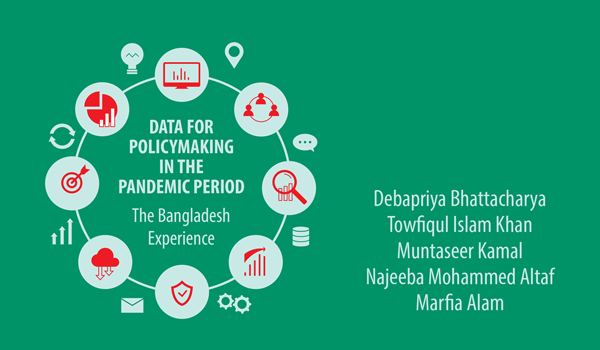Publications
CPD’s current publication list contains more than 500 titles including Books, Monographs, Working Papers, Dialogue Briefs and Policy Briefs. If you want to collect the hard copies of the publications, please contact with CPD. You can find the soft copies of the book in the CPD website.
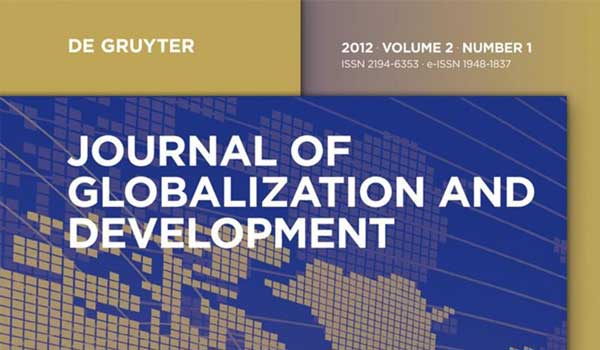
April 27, 2022
This paper traces the role played by government policy in fostering Bangladesh’s burgeoning pharmaceuticals sector and then examines the extent to which such policies would have been permissible under World Trade Organization (WTO) rules and the rules of recent trade and investment treaties. Read more
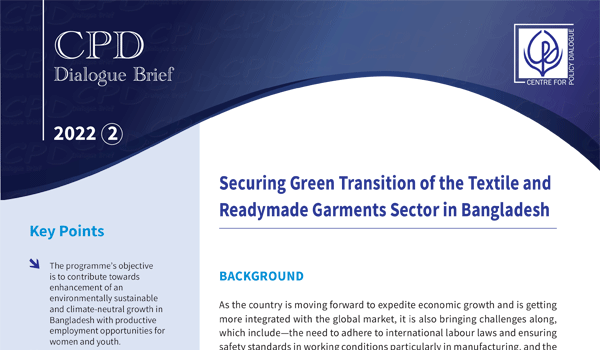
April 27, 2022
As the country is moving forward to expedite economic growth and is getting more integrated with the global market, it is also bringing challenges along, which include—the need to adhere to international labour laws and ensuring safety standards in working conditions particularly in manufacturing, and the need to be environmentally compliant. Read more
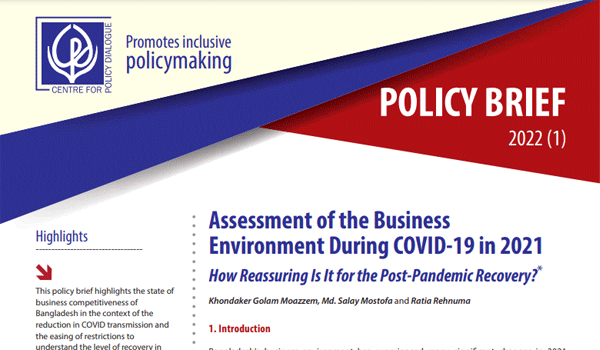
April 23, 2022
This policy brief highlights the state of business competitiveness of Bangladesh in the context of the reduction in COVID transmission and the easing of restrictions, with the objective to understand the level of recovery in the business environment. Read more
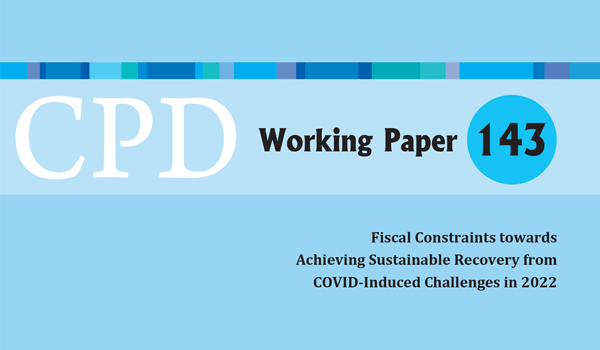
April 17, 2022
This report, prepared under the Centre for Policy Dialogue’s (CPD) flagship programme titled Independent Review of Bangladesh’s Development (IRBD), offers an analysis of the economy that started off on a normal course at the beginning of the fiscal year and then entered into an unforeseen terrain and uncharted waters soon after the first quarter. Read more
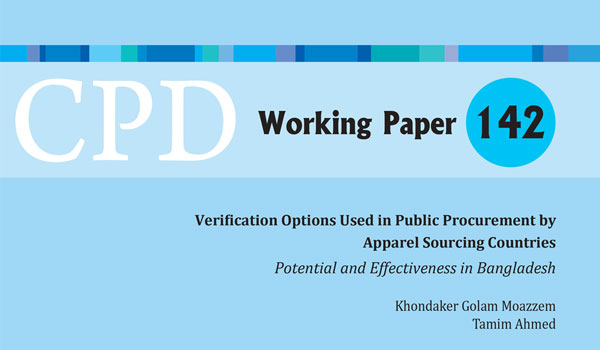
March 31, 2022
The objective of the study is to review the existing practices of different standards and certificates related to socially responsible public procurement (SRPP), and their potential and effectiveness in improving workers’ well-being, along with employment and workplace safety and workers’ rights in Bangladesh. Read more

March 22, 2022
This report aims to analyse the country context, policies, and budgets of the fiscal year against gender-based violence and the associated sense of fear. Read more
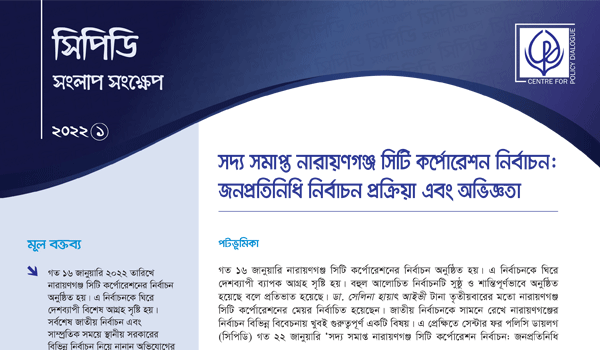
March 6, 2022
গত ১৬ জানুয়ারি ২০২২ তারিখে নারায়ণগঞ্জ সিটি কর্পোরেশনের নির্বাচন অনুষ্ঠিত হয়। এ নির্বাচনকে ঘিরে দেশব্যাপী ব্যাপক আগ্রহ সৃষ্টি হয়। বহুল আলোচিত নির্বাচনটি সুষ্ঠু ও শান্তিপূর্ণভাবে অনুষ্ঠিত হয়েছে বলে প্রতিভাত হয়েছে। Read more
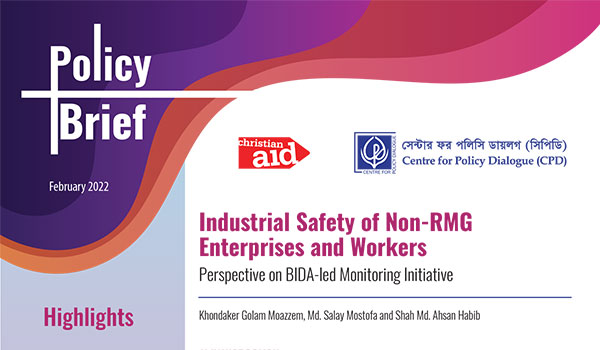
February 24, 2022
In the past six months, 82 different types of accidents have been reported in the national dailies; in other words, almost one incident occurred in every two days. Read more
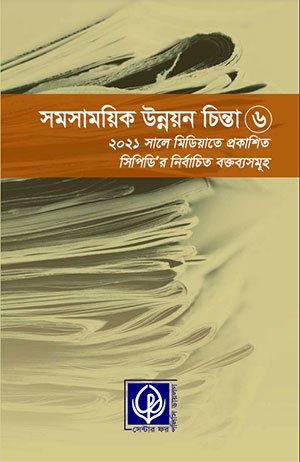
February 20, 2022
সিপিডি ২০২১ সাল জুড়ে কোভিড অতিমারির প্রাদুর্ভাব, তার নানামুখী প্রভাব, সরকারের নানান উদ্যোগ ও তার বাস্তবায়ন ইত্যাদি নিয়ে বিশদভাবে গবেষণা করেছে। সেই প্রেক্ষিতে ২০২১ সালের সামগ্রিক মূল্যায়ন, সেইসঙ্গে ২০২২ সালে দেশের অর্থনীতি কী ধরনের চ্যালেঞ্জের সম্মুখীন হতে পারে সেটির একটি প্রতিফলন বইটিতে রয়েছে। Read more
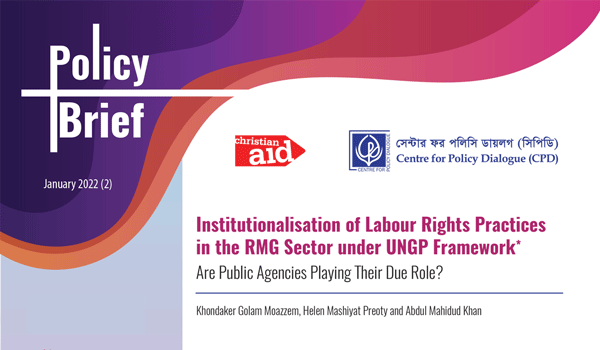
February 2, 2022
This policy brief discusses the conceptual issues related to state’s role in implementing UNGPs in businesses, review the current state of human and labour rights practices under the UNGP framework in the RMG sector Read more




